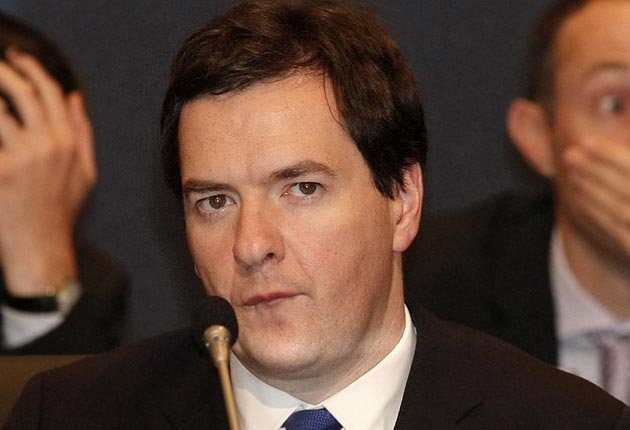OECD highlights threats to UK as it slashes growth forecast

Renewed weakness in the housing market and the deficit reduction programme is threatening to weaken Britain's economic recovery, the Organisation for Economic Cooperation and Development has warned.
The OECD, the "club" of the world's advanced economies, has radically reduced its growth forecast for the UK for next year from 2.5 per cent to 1.7 per cent, reflecting what it calls "increasing headwinds" from the Government's deficit reduction programme, which it still endorses.
The OECD is also calling on the Bank of England not to raise interest rates until next summer at the earliest, and for the Chancellor to be prepared to act if needs be. "Even if the economy showed signs of turning out weaker than projected, planned structural fiscal adjustments should continue, though some temporary support could be provided in the event of a significant slowdown," it said.
As such, the OECD's forecast is now markedly lower than that of 2.3 per cent produced by the Office for Budget Responsibility at the time of the Budget, and the Bank of England's broadly similar estimate. The OECD sees the UK expanding by just 2 per cent in 2012, against 2.8 per cent for the OBR.
A rise in VAT to 20 per cent in January will trim 0.3 per cent from growth, the OBR confirmed yesterday. New forecasts from the OBR are due on 29 November.
Meanwhile, the latest figures on mortgage lending would appear to confirm the OECD's worst fears. The Council for Mortgage Lenders reported the lowest October figures since 2000. Just £12.4bn was advanced in October, down 9 per cent on October 2009.
The Bank of England added, in its Trends in Lending Report, that the problem was shifting from lenders to buyers: "Demand for secured credit for house purchase was reported to have fallen unexpectedly in the third quarter and the major UK lenders expected demand for secured lending to remain subdued."
The uncertainties surrounding economic prospects are pushing forecasters into ever more divergent views of the future. The OECD say that the "robust" growth seen so far this year was helped by rebuilding of stocks run down during the recession, but this is set to fade. Instead, the UK's recovery will be underpinned by domestic spending and exports. The latter in particular, however, may be badly affected by new sovereign debt crises in the euro area, Britain's largest export market.
The OECD's latest Economic Outlook states: "The economy is recovering from the recession, supported by both growing domestic demand and rising exports. The substantial but necessary fiscal tightening and weak real income growth create headwinds, and growth is projected to remain subdued in 2011.
"The recovery will gain a bit more momentum in 2012 when exports are expected to increase further and business investment to grow robustly."
The housing market is identified as a weak point: "Renewed decline in house prices in the UK would have a negative effect on household balance sheets , and have become a more acute risk in the UK.
"Several recent signs point to renewed weaknesses in the housing market. UK residential property is perhaps 40 per cent overvalued on historic norms, the OECD suggests, though no immediate correction is foreseen.
Better news emerged from the "real economy", however. UK car production, 75 per cent of which is exported, is up 6 per cent compared with the same period last year. The CBI's industrial trends survey reported better-than-expected demand in November, with home and export order books improving. Ian McCafferty, the CBI chief economic adviser, commented: "Factory output is still set to rise, albeit with modest expectations for growth, compared with recent months. Inflationary pressures are a concern."
Subscribe to Independent Premium to bookmark this article
Want to bookmark your favourite articles and stories to read or reference later? Start your Independent Premium subscription today.

Join our commenting forum
Join thought-provoking conversations, follow other Independent readers and see their replies